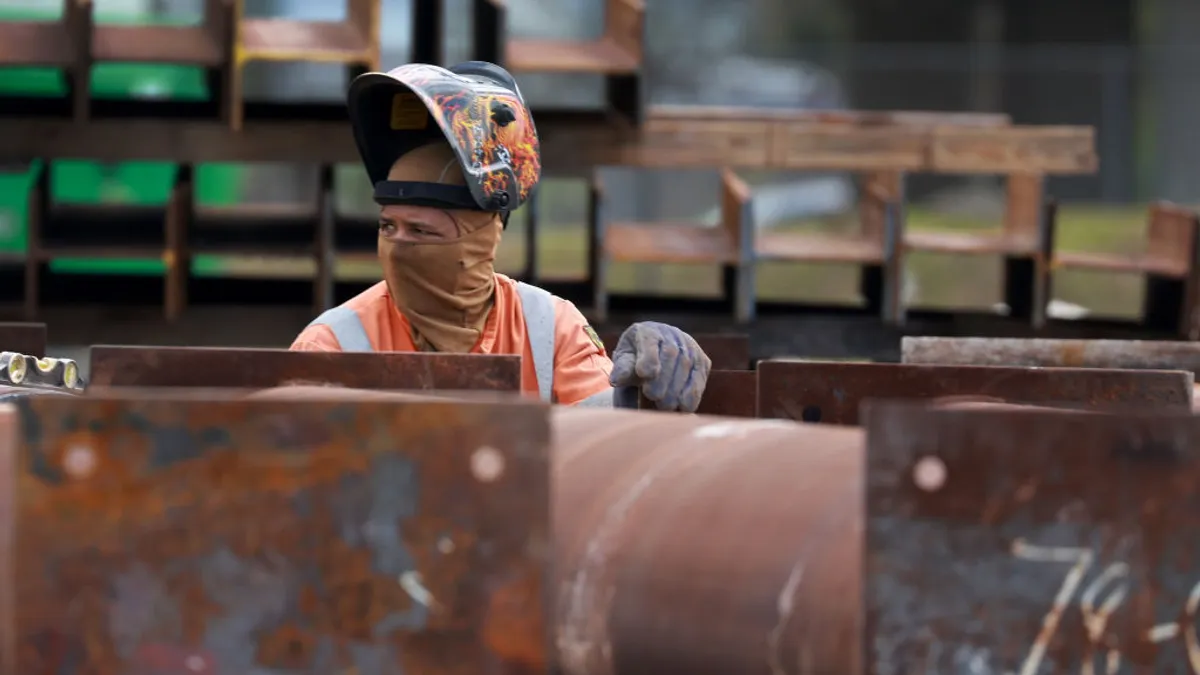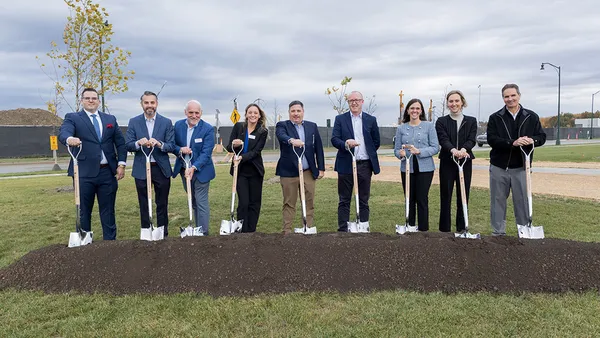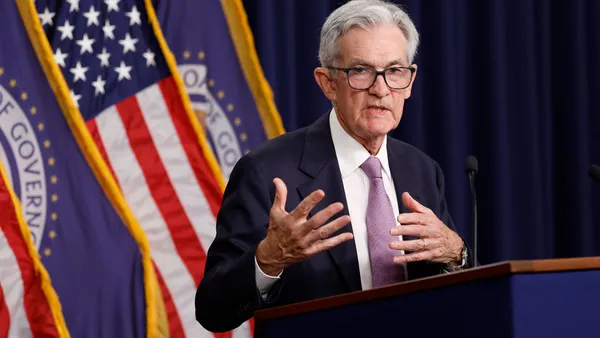Dive Brief:
-
A construction worker who claims he witnessed two co-workers plunge to their deaths in August 2018 while performing concrete work at the JW Marriott Orlando Bonnet Creek Resort in Orange County, Florida, near Walt Disney World, is suing Marriott International and PCL Construction Services as well as developers and other contractors affiliated with the project for emotional distress and other alleged injuries. Plaintiff Vernon Brown is seeking more than $15,000 in damages.
-
In documents filed with the Ninth Judicial Circuit Court in Orange County, Brown alleges that he was working on scaffolding and stepped off just in time before it began to fall. Two co-workers still on the scaffolding, Lorenzo Zavala and Jerry Bell, died after plunging 80 feet. Brown alleges that Marriott, PCL, Bonnet Creek Venture Ltd., Universal Engineering Sciences and other project contractors all acted with some degree of negligence and failed to take the necessary measures to maintain a safe workplace.
-
Summons were issued by the court on Sept. 1, but, according to the Orange County Clerk of Courts, as of Sept. 3, they have yet to be recorded as served. Each defendant has 20 days from service to file a written response to Brown's complaint.
Dive Insight:
A case like Brown's, said Jason Kellogg, partner at the law firm of Levine Kellogg Lehman Schneider + Grossman in Miami, is very difficult to win because it requires plaintiffs to prove that the level of negligence was so high that it could be considered intentional, particularly in Florida, which has what's known as an "impact law."
This, he said, typically requires that someone who is suing for emotional distress also have been subjected to a physical impact. However, Kellogg said, plaintiffs might be able to overcome that restriction if they can prove a very high level of wantonness and willfulness on the part of the defendants.
Even so, he said, plaintiffs like Brown have a tough road ahead of them when they take this approach. "The plaintiffs have a very high bar," Kellogg said. "It’s a very difficult hurdle to prove gross negligence."
In March, OSHA found that the accident occurred after supports collapsed while workers were pouring concrete on the seventh floor of the hotel structure. OSHA said that PCL and Universal Engineering did not inspect formwork, shoring, working decks and scaffolds to ensure compliance with formwork drawings and that PCL did not make sure the formwork brace was able to support vertical and lateral loads.
OSHA fined both PCL and Universal in connection with the accident but ended up withdrawing the citations and fines issued to Universal a few weeks later. PCL is contesting the three OSHA violations — two serious and one willful — and the $144,532 in fines.
Insurance typically plays a big role in cases like this, with contractors' commercial liability policies often contributing much of the eventual settlement. After the Florida International University pedestrian bridge collapse, the $42 million that came from Magnum Construction Management, former known as Munilla Construction Management, was reportedly from insurance policy proceeds.
So, will insurance protect contractors against the type of accident that happened at the Marriott? That depends on their coverage, according to Christa Solfanelli, associate general counsel at Graham Company, a national insurance broker.
"Often people buy policies hoping for the best, not knowing what’s in them," she said.
This is why it's so important, Solfanelli said, for contractors to work with their brokers and review their policies on a regular basis to make sure they are adequate for the type of work they perform and that, as their businesses grow, the coverage increases accordingly.
Construction Dive reached out to all of the contractors named in the suit, as well as to Marriott, for comments. Marriott and PCL responded that they could not comment on pending litigation.













